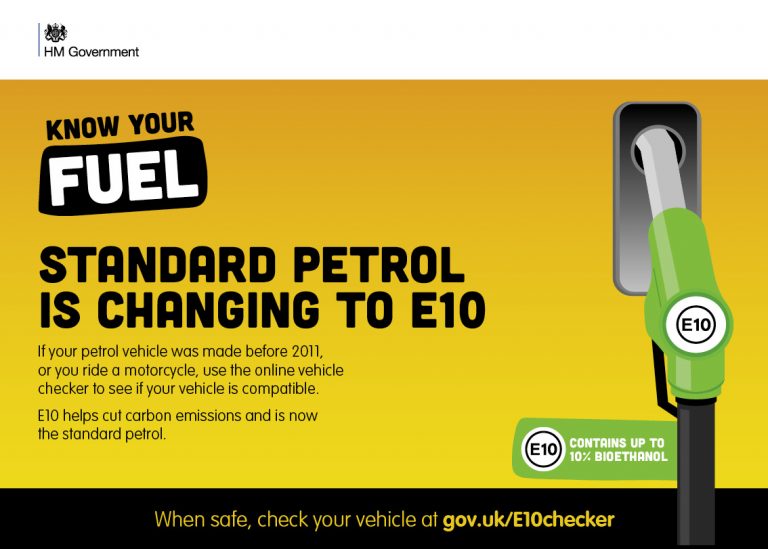Fuel pumps up and down the country will look different this summer, as E10 petrol will be introduced as the UK-wide standard fuel grade from 1 September 2021.
It is important all fuel retailers are prepared for this change, have briefed their staff and communicated to their customers to avoid confusion.
What is E10 petrol?
E10 is a biofuel made up of 90% regular unleaded and 10% ethanol, hence its name E10. The change in fuel applies to petrol only, diesel will not be changing.
The introduction of this blend of fuel is intended to help to reduce carbon dioxide emissions in a nationwide effort to tackle climate change.
Almost all (95%) petrol-powered vehicles on the road today can use E10 petrol and all cars built since 2011 are compatible.
The Department for Transport (DfT) has produced a wide range of information and tools under their ‘Know Your Fuel’ campaign to help forecourt retailers manage the switchover.

Transport minister Rachel Maclean said: “The rollout of E10 is the latest in a string of measures we’re taking to cut road emissions, reduce pollution and keep us on track to meet our ambitious net zero by 2050 target.
“This campaign will not only make drivers aware of the changes we’re making, but will also show millions of motorists how E10 introduction plays a part in helping reduce carbon emissions and build back greener with every tank of petrol.”
From the date of introduction, there will be a 2-month period before the fuel sold at filling stations will be required to meet the ethanol content requirement to allow time for fuel deliveries around the UK.
Clean-air charges hit retailer profits in Birmingham
Labelling
Fuel retailers must ensure pumps are correctly labelled with the circular ‘E10’ or ‘E5’ labels, visible on both the petrol dispenser and nozzle. E10 petrol is any fuel grade up to 10 per cent ethanol, meaning anything over E5 grade is deemed to be E10.

These changes apply to fuel retailers who sell more than 1 million litres of fuel a year, with the following exceptions:
- Any fuel terminal unable to blend ethanol into petrol will be able to apply for an exemption to the 5.5% minimum blend level
- Filling stations eligible for the Rural Fuel Duty Relief Scheme will not be required to meet the 5.5% ethanol requirement
The Association of Convenience Stores has produced this short video explaining what E10 petrol is:
For more information on E10 petrol click here on the government’s website.



Comments
This article doesn't have any comments yet, be the first!